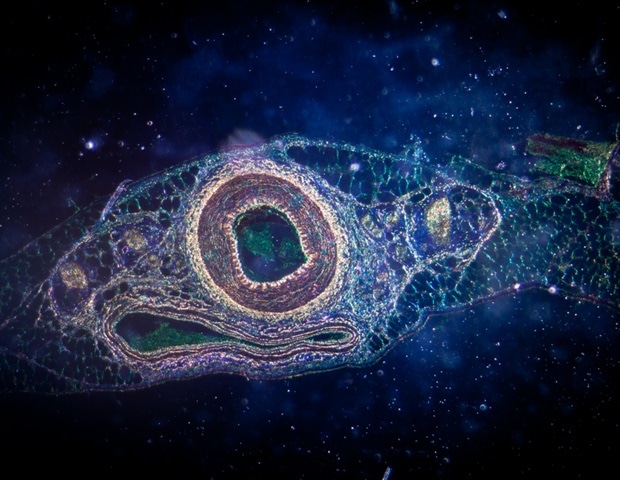Natural material derived from seaweed can help improve outcomes after heart bypass surgery


Researchers are using a natural material derived from seaweed to promote vascular cell growth, prevent blood clots and improve the performance of synthetic vascular grafts used in heart bypass surgery.
The new approach, developed and tested at the University of Waterloo, is especially important in cases involving small artificial blood vessels – those less than six millimeters in diameter – which are prone to clots that can develop into full blockages.
“There is a crucial need to develop synthetic vascular graft materials that will increase the rate of long-term functions,” said Dr. Evelyn Yim, a chemical engineering professor and University Research Chair who leads the project.
Researchers added a material called fucoidan, which is made from seaweed, to modify synthetic blood vessels. Fucoidan has a structure similar to heparin, a drug used as an anticoagulant.
When applied with a nanotechnology technique known as micropatterning, fucoidan promotes the growth of vascular cells around the inner surface of the graft, significantly reducing the chances of clots forming.
For patients, the potential benefits include fewer complications, better quality of life and less risk of the recurrence of blockages requiring additional drug treatment or surgery.
A functional, off-the-shelf, small-diameter vascular graft will help save lives. What’s important is that they will be much longer-lasting and allow blood to flow freely.”
Dr. Evelyn Yim, chemical engineering professor, director of the Regenerative Nanomedicine Lab at Waterlo
Bypass surgery is performed to restore blood flow to areas of the heart when vessels become blocked. Vessels harvested from the patient are the gold standard for grafts, but limited availability often requires the use of artificial vessels.
In addition to heart bypass surgery, grafts are used in medical procedures to treat vascular diseases and restore blood flow to vital organs and tissues, including the brain and legs.
When synthetic graft material doesn’t allow vascular cells to grow on the inside of an artery or vessel, there is a high chance of clots, which can develop into full blockages or cause inflammation that restricts blood flow.
Yim has successfully tested the new technique using fucoidan and micropatterning on small animals and plans to expand to large animal testing before advancing to clinical trials.
Several researchers from the Department of Chemical Engineering at Waterloo and the Department of Biomedical Engineering at the Oregon Health and Science University have collaborated on this project.
Yao, Y., et al. (2022) Fucoidan and topography modification improved in situ endothelialization on acellular synthetic vascular grafts. Bioactive Materials. doi.org/10.1016/j.bioactmat.2022.10.011.


